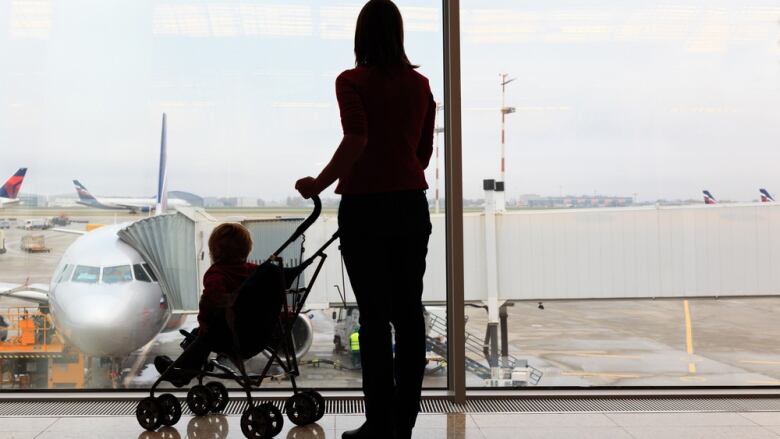Citizenship confers a sense of belonging. It's more than just paper
The considerations for ending birthright citizenship should go beyond politics

Jus soli. These two seemingly simple words have enormous meaning socially, politically and on an intimate level: personally. The law of the soil, or birthright citizenship, means that in Canada, a person born within its borders is automatically given Canadian citizenship. It's a matter of law, of demographics and of belonging. You were born in Canada — you belong here.
The issue has garnered enormous attention recently after being raised at the Conservative Party of Canada's national policy convention in Halifax last weekend. The party approved a resolution to "enact legislation which will fully eliminate birthright citizenship in Canada unless one of the parents of the child born in Canada is a Canadian citizen or permanent resident of Canada."
CPC leader Andrew Scheer said the objective is to end "birth tourism."
Birth tourism by the numbers
To be clear: there is no indication that birth tourism is a national problem. In 2016, 313 mothers whose place of residence was outside of Canada gave birth in our country. Of those 313 births, 99 occurred in British Columbia, meaning that the issue is a highly concentrated one, with Richmond, B.C. as the epicentre, so to speak, of "birth tourism." Around one in five moms who gave birth at the Richmond Hospital in the 2016-2017 fiscal year were not Canadian residents.
The issue has united the Liberals and Conservatives in B.C. in terms of wanting to do something, but where they differ is in their approach of to how to handle it. While on one side, you have those who have taken steps to reduce and eliminate birth tourism specifically (Liberal MP Joe Peschisolido launched an e-petition calling for "concrete measures" to end the practice, for example), on the other, you have those who have made a drastic move toward axing birthright citizenship across the nation.
Jus soli has been the law of the land since the introduction of the Canadian Citizenship Act in 1947. There have been various attempts to address it since then, including efforts by the Harper government in 2012 to "send the message that Canadian citizenship isn't just some kind of an access key to the Canadian welfare state by cynically misrepresenting yourself" — to borrow the words of then Immigration Minister Jason Kenney. But those efforts faced various roadblocks and never got off the ground.
-
Tory motion to end birthright citizenship is 'just not workable,' says immigration lawyer
-
'It's fraudulent': Former immigration official says action needed on 'passport babies'
This time could be different. While the B.C.-based birth tourism involves largely Chinese nationals, Canada is simultaneously dealing with another issue of trying to process the backlog of asylum-seekers who have crossed into the country. A change to the Citizenship Act might affect the status of the children they will have while in limbo, and there might be more support for a change based on some of the anti-refugee sentiment flowing across the country.
But the considerations here should be more than political. Some of these children will be born to people fleeing persecution, disjointed from their own countries of birth. Elimination of birthright citizenship risks creating stateless children not only legally, but emotionally. We all yearn for a place to call "home." To belong. A Canadian birth certificate isn't simply a piece of paper: it is confirmation that you are part of something; you are accepted.
Surely there is a way to end the practice of birth tourism for wealthy mothers who see giving birth in Canada as an easy ticket to citizenship, without axing the principle of jus soli, on which our country has been based for more than 60 years. Modifying the Citizenship Act for the sake of a few hundred births isn't worth the risk of stateless children, legal limbo and perhaps just as importantly, feelings of unbelonging.
This column is an opinion. For more information about our commentary section, please read this editor's blog and our FAQ.

